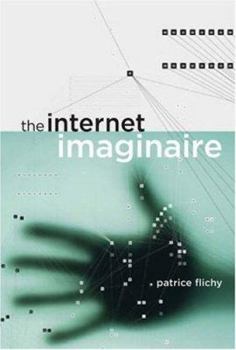The Internet Imaginaire
Select Format
Select Condition 
Book Overview
The collective vision that shaped the emergence of the Internet: what led software designers, managers, employees, politicians, and individuals to develop and adopt one particular technology.In The... This description may be from another edition of this product.
Format:Hardcover
Language:English
ISBN:0262062615
ISBN13:9780262062619
Release Date:January 2007
Publisher:MIT Press
Length:255 Pages
Weight:1.20 lbs.
Dimensions:1.0" x 6.4" x 9.2"
Age Range:18 years and up
Grade Range:Postsecondary and higher
Related Subjects
Computers Computers & Technology Engineering Social Science Social Sciences TechnologyCustomer Reviews
1 rating
The history of the Internets
Published by Thriftbooks.com User , 15 years ago
This book was originally publiched in France in 2001. It contains the history of Internet with a focus on the ideas and utopias as formulated by "the digital generation", especially in Wired magazine in the 1990s. The conclusions and theoretical framework are not always totally clear, but what Flichy gives us is a detailed record of the story of Internet and the ideas driving it's evolution, from the hardcore scientists at Narpa to the Clinton-administrations talk of "the Information super highway" to romantics dreaming about a global brain and non-hierarchic, society-transforming communication to cyberpunk and so on. The story stops around year 2000, and someone will have to write a sequel sooner or later. Recommended to students of social science and the humanities, or anyone interested in the early history of the Internet.




